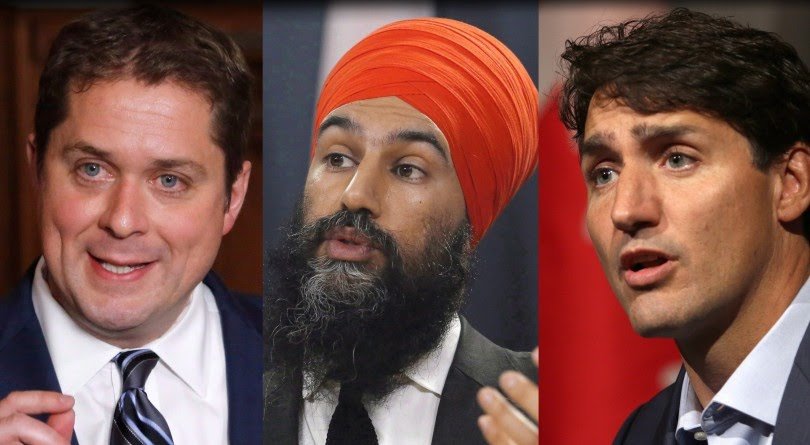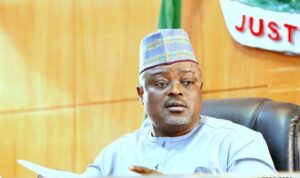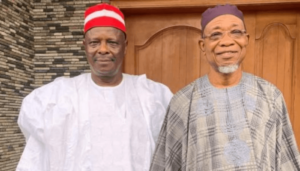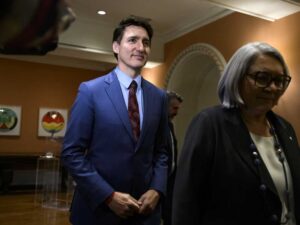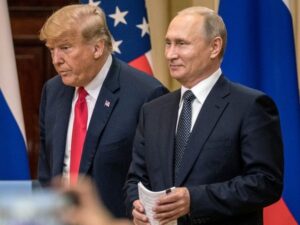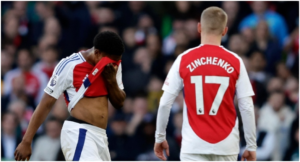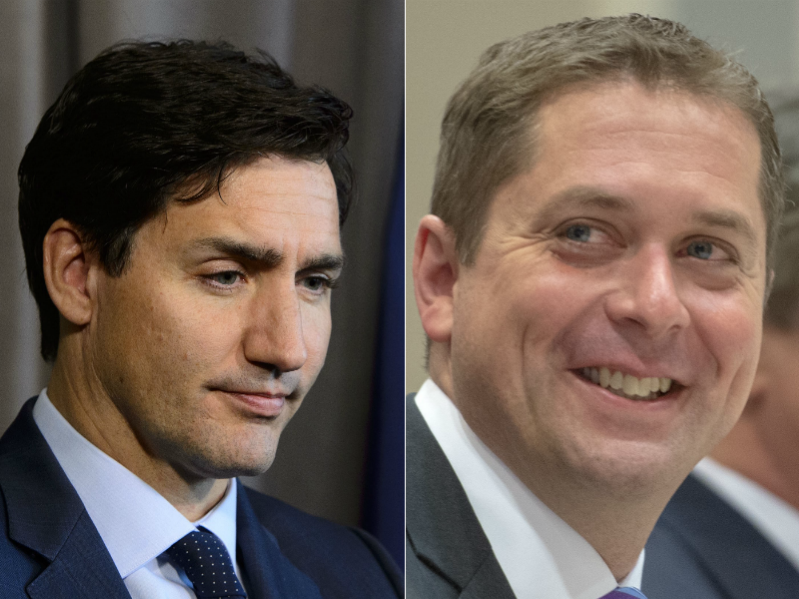
Liberal Leader Justin Trudeau has jumped ahead of Tory Leader Andrew Scheer as voters’ choice for prime minister, Ipsos’ Darrell Bricker says.
Liberal Leader Justin Trudeau has leapt ahead of his rival, Conservative Leader Andrew Scheer, in Canadians’ estimations of whom would make the best prime minister, a new poll suggests.
According to an Ipsos poll conducted exclusively for Global News and La Presse between Sept. 11 and 13, 37 per cent of Canadians surveyed said they think Trudeau is best suited for the role of prime minister — a seven-point jump compared to mid-August.
In comparison, 30 per cent said the same about Scheer. That marked a drop of two per cent for the Tory leader since the same time last month.
Green Party Leader Elizabeth May saw a seven-point drop among voters asked the same question: only 14 per cent said she would make the best prime minister compared to 21 per cent in August.
Ten percent said NDP Leader Jagmeet Singh would be best for the job while only five percent said the same about Maxime Bernier, leader of the People’s Party of Canada.
One per cent picked Bloc Québécois Leader Yves-François Blanchet.

Those results come on the heels of a release of different polling data on Monday from the same time period, which looked at the separate question of decided voter party support.
That data suggested that both the Liberals and Conservatives are tied among decided voters with 35 per cent each. In third place is the NDP with 14 per cent of decided voter party support, while the Green Party sits in fourth place with nine per cent.
 Darrell Bricker, president of Ipsos, said there are a couple of reasons why the leader who Canadians believe would make the best prime minister may differ from which party those voters who have made up their minds actually plan to vote for in October.
Darrell Bricker, president of Ipsos, said there are a couple of reasons why the leader who Canadians believe would make the best prime minister may differ from which party those voters who have made up their minds actually plan to vote for in October.
“Two leaders are having a positive, maybe a springboard, effect on their parties. One of them, Justin Trudeau, running slightly ahead of his party and the other one running quite a bit ahead of her party is Elizabeth May — so it’s less about the Greens and more about Elizabeth May,” said Bricker.
“Andrew Scheer is running about five points behind his party right now and is a little bit of a drag on his ticket whereas Jagmeet Singh is running a fair amount behind the NDP right now and also represents a bit of a drag.”
According to the new data released on Wednesday, both Trudeau and Scheer are tied at 29 per cent when it comes to who voters think is most likely to keep their election promises.
Respondents also ranked both Trudeau and May in a statistical tie — meaning the difference is within the poll’s margin of error — on the question of who will actually tackle the issue of climate change.
Twenty-six per cent said Trudeau, while 25 per cent said May.
Fifteen per cent of respondents picked Scheer, and just nine per cent did so for Singh.
There are also differences between the party leaders in terms of other issues that voters think they will be best placed to address.
A slight majority (51 per cent) of respondents disapprove of Trudeau’s handling of the economy while 49 per cent approve. Those responses show a sharp divide regionally as well, with 70 per cent of respondents in Alberta disapproving and 56 per cent of those in Quebec approving.
In the poll, 27 per cent pointed to Trudeau as the best leader to improve health care while 21 per cent said the same about Scheer and 15 per cent did so for Singh.
Respondents also ranked Trudeau as best placed to represent Canada on the world stage (35 per cent compared to 27 per cent for Scheer) and having the right temperament and maturity to be prime minister (30 per cent versus 26 per cent for Scheer).
On protecting the interests of cultural, religious and other minorities, respondents also picked Trudeau over Scheer: 33 per cent said Trudeau would be the best, while 17 per cent said Scheer would.
But on who would do the best job of tackling Canada’s deficit, 33 per cent picked Scheer.
Twenty-two per cent said the same for Trudeau.
Scheer also won out on the question of who would be best to manage the Canadian economy during tough times, with 31 per cent of respondents’ support over Trudeau, who took 28 per cent.
However, the risk of voter apathy appears to be real, the poll suggests.
More respondents picked “none” when asked which leader would be best at spending taxpayers’ money wisely (31 per cent), being someone they can trust (29 per cent), tackling the deficit (27 per cent) and providing open and ethical government (25 per cent).
The issues of affordability and support for the middle class are a key focus for both Trudeau and Scheer.
The polling suggests voters aren’t particularly inspired by the promises coming from either party on that front, with 29 per cent of respondents picking “none” on who will make things more affordable.
Scheer ranked at 25 per cent on that question compared to Trudeau at 22 per cent.
But when the question was posed as who will fight for the middle class, Trudeau and Scheer were statistically tied at 26 per cent and 25 per cent, respectively.
“The fight over that has not been settled yet and I think you’re going to see both parties making this the biggest issue,” Bricker said. “You’re going to see both parties really double down to try to connect with middle class voters on affordability issues.”
However, three in 10 Canadians (36 per cent) say they don’t like any of the parties in the election, raising the question of whether those who turned out in droves to elect Trudeau in 2015 will do so again.
Among youth in particular, who played a key role in that victory, 41 per cent of those aged 18 to 34 said the same, along with 48 per cent of those who said they don’t plan to vote — and Bricker said if youth don’t show up, it’s clear who will benefit.
“The Conservatives, for sure,” he said.
At the same time, 64 per cent of respondents say they want a majority government.
Thirty-nine per cent say they would be happy with a minority.
In order to win a majority government, a party must win at least 170 seats in the House of Commons.
For the raw data of the Ipsos poll, visit Ipsosintelligence.ca.
This Ipsos poll was conducted Sept. 11 to 13, 2019, on behalf of Global News and La Presse and asked 2,562 Canadian adults how they would vote if a federal election were held tomorrow. For this survey, a sample of 2,062 was interviewed online, via the Ipsos I-Say panel and non-panel sources, and respondents earned a nominal incentive for their participation. A sample of 500 Canadians aged over the age of 18 was interviewed by live-interview telephone interviewers by landline and cellphone, using random-digit dialling. The precision of Ipsos polls, which include non-probability sampling, is measured using a credibility interval. In this case, the poll is accurate to within ± 2.2 percentage points, 19 times out of 20, had all Canadians been polled. The credibility interval will be wider among subsets of the population.
Source: Global News Canada
